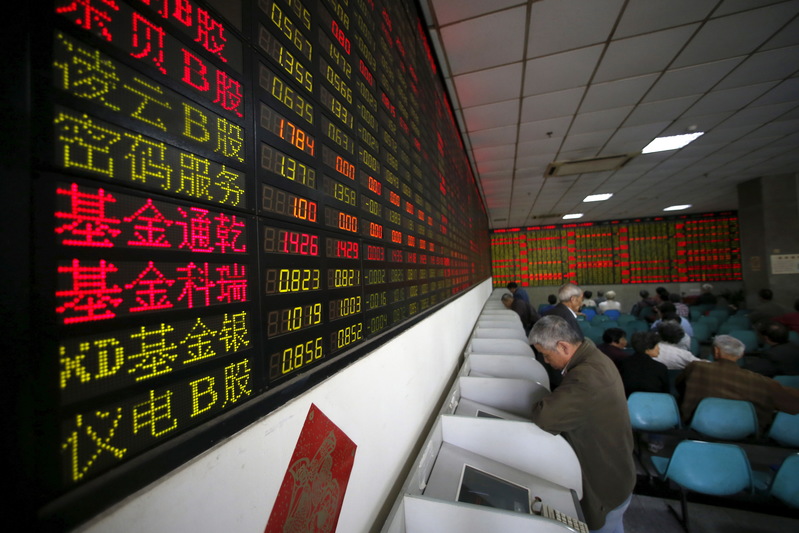- Equities Market: N3trn Gain Boosts Full Recovery Prospects
Stakeholders in the Nigerian capital market are now more optimistic that about its recovery at the end of the year as the equities market has gained N3.094 trillion in seven months. Having recorded a decline for three consecutive years to 2016, expectations are high that the market would recover in 2017.
Although the market started the year with fall in January and February, it closed in green in March rising by 0.74 per cent. That positive trend has been sustained culminating in a gain of N3.094 trillion in capitalisation as at the end of July on Monday.
Specifically, the market capitalisation ended at N12.35 trillion, up from N9.265 trillion at the beginning of the year, translating to a growth of 33.3 per cent.
Similarly, the Nigerian Stock Exchange (NSE) All-Share Index rose by same margin of 33.3 per cent from 26,874.62 to close at 35,844 on Monday.
The Chief Executive Officer of the NSE, Mr. Oscar Onyema, some operators and market analysts had expressed optimism that investors should expect a positive performance this year.
According to him, the capital market is a subsector of the Nigerian economy and since it had been projected that the economy would recover from its recession and record a growth this year, the stock market should also recover.
After recording a decline in January and February, the make entered a bullish mode in March rising by 0.74 per cent. It consolidated with an appreciation of 0.95 per cent in April. The market took a major leap in May, jumping by 15 per cent as the new foreign exchange window for importers and exporters introduced by the Central Bank of Nigeria (CBN) attracted more foreign investors. The return of the foreign investors triggered interest among domestic investors, a development that led to sustained bull run that led to a growth of 12 per cent each in June and July. Consequently, the market gained over N3 trillion in seven months.
In fact, the market had rallied almost three months high last Thursday when the capitalisation hit a new high of N12.84 trillion, while index settled at 37,245.17 before profit taking set in last Friday and Monday.
Within the last six months, the level of foreign portfolio investments (FPIs) rose by 59.8 per cent to N430 billion, up from N269.22 billion invested in the corresponding period of 2016, according to data released by the NSE.
Similarly, domestic investors increased their level of investments to N505.03 billion in 2017, up by 42.19 per cent compared to N355.19 billion in 2016.
In all, total transactions at the nation’s bourse in H1 of 2017, increased by 47.7 per cent to N935 billion, from N624 billion in 2016. However, domestic investors outperformed foreign investors by 7.82 per cent in the month of May. While total domestic transactions increased by 7.53 per cent from N110.42 billion recorded in May 2017to N118.74billion in June2017, FPIs also increased by 6.66 per cent from N95.19 billion to N101.53billion within the same period.
But a further analysis of the domestic participation showed that the institutional composition of the domestic market decreased by 17.09pe cent from N67.95 billion recorded in May to N56.34billion in June 2017.
However, the retail composition increased by 46.92 per cent from N42.47 billion to N62.40billion within the same period.
According to NSE, this indicates a higher participation by retail investors over their institutional counterparts for the first time this year.


 Education4 weeks ago
Education4 weeks ago
 News3 weeks ago
News3 weeks ago
 Business3 weeks ago
Business3 weeks ago
 Technology3 weeks ago
Technology3 weeks ago
 Investment4 weeks ago
Investment4 weeks ago
 Investment3 weeks ago
Investment3 weeks ago
 Telecommunications4 weeks ago
Telecommunications4 weeks ago
 Banking Sector3 weeks ago
Banking Sector3 weeks ago





























